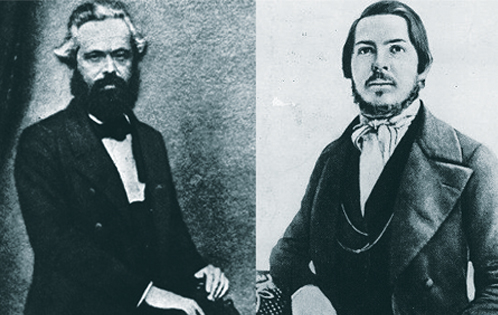Bourgeois and Proletariat from The Communist Manifesto by Karl Marx and Friedrich Engels -- Summary and Response
Summary
Introduction
All Europe fears communism. The term is used and misused as a curse by various political parties. This indicates that Communism is a powerful force. It is time to officially present the party's views.
Bourgeois and Proletarians
All through history there have been classes and class struggles. Attempts at revolution resulted in a big change or massive death. Today's society is still one of oppression, by the bourgeois of the proletariat, who must labor for their livelihood. With advances of technology the industrial system emerged and with it the current social order. The explosion in manufacture has resulted in great riches for a few and massive exploitation. The bourgeois, along with financial dominance, have managed to establish political dominance. They managed to abolish the system of slave and master by their very emergence and left a world in which men operate out of monetary self-interest. Exploitation under religious pretenses has become straightforward exploitation.
The "bourgeois epoch" is characterized by constant change and flux. Technology changes and there is a race to keep up. There is a need for an expanding market to sustain growth and so the bourgeoisie is spreading globally. Nothing is localized anymore and national industries are being destroyed. Even primitive countries are drawn in due to effective and cheap modes of production and communication. This bourgeois explosion eradicated the feudal system entirely.
Globalization is increasing and nationalities are increasingly irrelevant, since single government id more effective in organizing international production.
This is all due to the labor power of the proletariat.
Response
Constant revolutionising of production, uninterrupted disturbance of all social conditions, everlasting uncertainty and agitation distinguish the bourgeois epoch from all earlier ones. All fixed, fast-frozen relations, with their train of ancient and venerable prejudices and opinions, are swept away, all new-formed ones become antiquated before they can ossify. All that is solid melts into air, all that is holy is profaned.









Comments
Post a Comment
Hey friend! 🌈 I can't help with your assignments but maybe other readers can. Good luck! 🤞